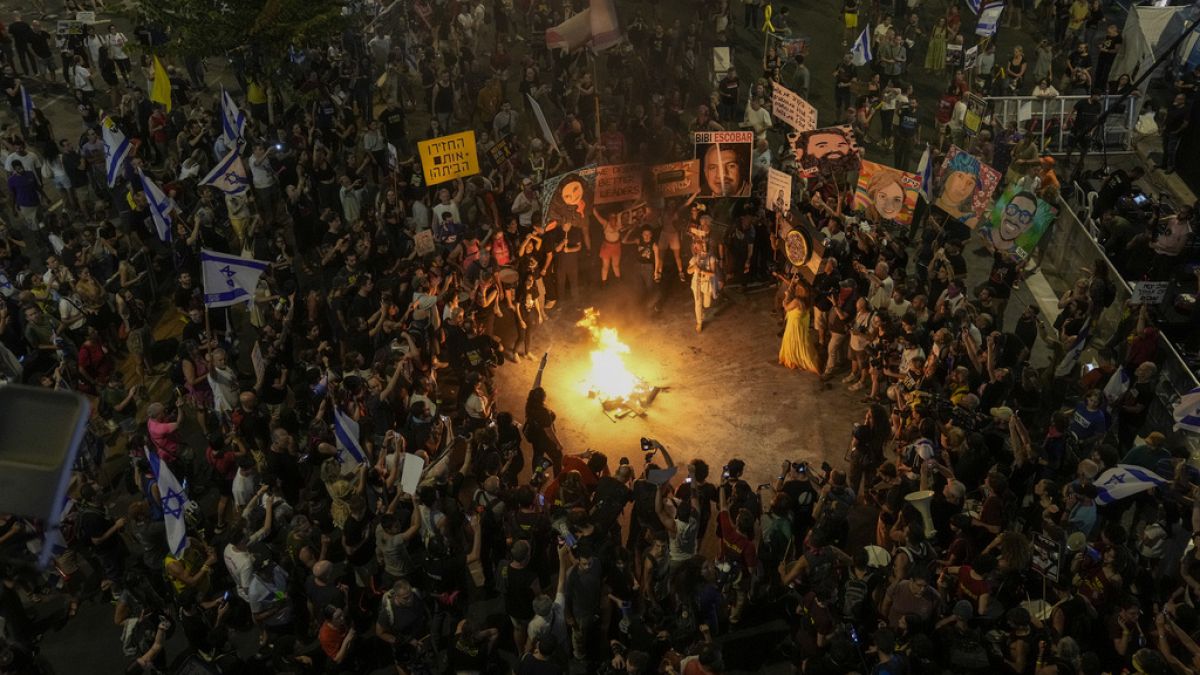Recent protests in Tel Aviv demanded the release of hostages taken by Hamas, leading to increased tension between Israel and Palestine. Thousands of people participated in the protests, calling on Israeli Prime Minister Benjamin Netanyahu to secure the release of around 100 individuals held captive in Gaza. The war in Gaza started with a surprise attack by Hamas, resulting in the death of hundreds of people and the hostages being taken. Despite most hostages being released during a previous cease-fire, around 100 individuals, including women and children, are still being held captive.
The situation escalated when the Israeli government launched an offensive in response to the attack by Hamas, resulting in the deaths of over 41,000 Palestinians in Gaza. The Gaza Health Ministry reported that a little over half of those killed were women and children, highlighting the devastating impact of the conflict on innocent civilians. The ongoing conflict has led to increased tensions between Israel and Palestine, with fears of a wider war continuing to rise. In response to the escalating violence, Israeli forces and the Lebanese paramilitary group Hezbollah have been carrying out intensifying attacks along the Lebanon-Israel border, further exacerbating the volatile situation in the region.
The protests in Tel Aviv reflect the growing frustration and anger among the Israeli population over the government’s handling of the hostage situation and the broader conflict with Hamas. The demand for Netanyahu and his government to secure the release of the remaining hostages highlights the urgent need for a peaceful resolution to the ongoing conflict. The demonstrations, characterized by protesters lighting flares and holding signs, demonstrate the determination of the Israeli people to seek justice for the hostages and bring an end to the cycle of violence that has plagued the region for years.
The international community has expressed concerns about the escalating violence in the region and the potential for a wider conflict to erupt. The high number of civilian casualties in Gaza has raised alarm bells among human rights organizations and world leaders, who have called for an immediate cessation of hostilities and a return to the negotiating table. The conflict between Israel and Palestine has long been a source of international concern, with various efforts made to broker peace agreements and find a lasting solution to the decades-old conflict. The recent protests in Tel Aviv serve as a stark reminder of the human cost of the ongoing conflict and the urgent need for a peaceful resolution that respects the rights and dignity of all parties involved.
As the conflict in Gaza continues to escalate, the need for diplomatic intervention and international pressure to de-escalate the situation becomes increasingly urgent. The continued attacks by Israeli forces and Hezbollah along the Lebanon-Israel border raise concerns about the potential for a wider war that could have devastating consequences for the entire region. The international community must work together to push for a peaceful resolution to the conflict, one that addresses the root causes of the violence and ensures the protection of civilians on all sides. It is crucial for all parties involved to prioritize dialogue and negotiation over further military escalation in order to prevent further loss of life and suffering in the region.
In conclusion, the ongoing conflict between Israel and Hamas has once again escalated, leading to protests in Tel Aviv demanding the release of hostages held captive in Gaza. The high number of civilian casualties and the intensifying attacks along the Lebanon-Israel border have raised concerns about the potential for a wider war in the region. The international community must work together to push for a peaceful resolution to the conflict, one that prioritizes the protection of civilians and the rights of all parties involved. The recent protests in Tel Aviv highlight the growing frustration among the Israeli population and the urgent need for a diplomatic solution to the ongoing conflict. It is essential for all parties to engage in meaningful dialogue and negotiation to prevent further violence and loss of life in the region.











